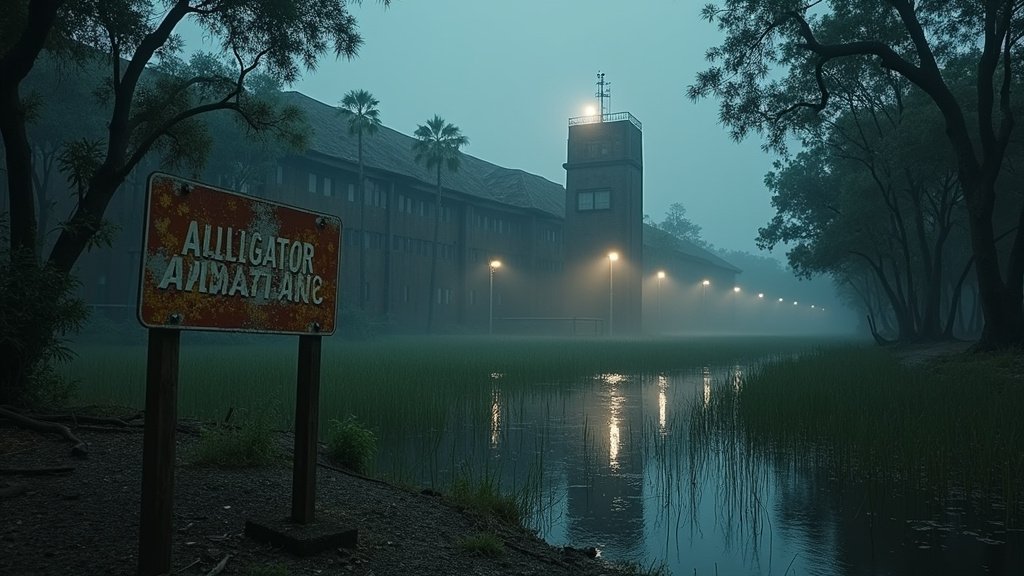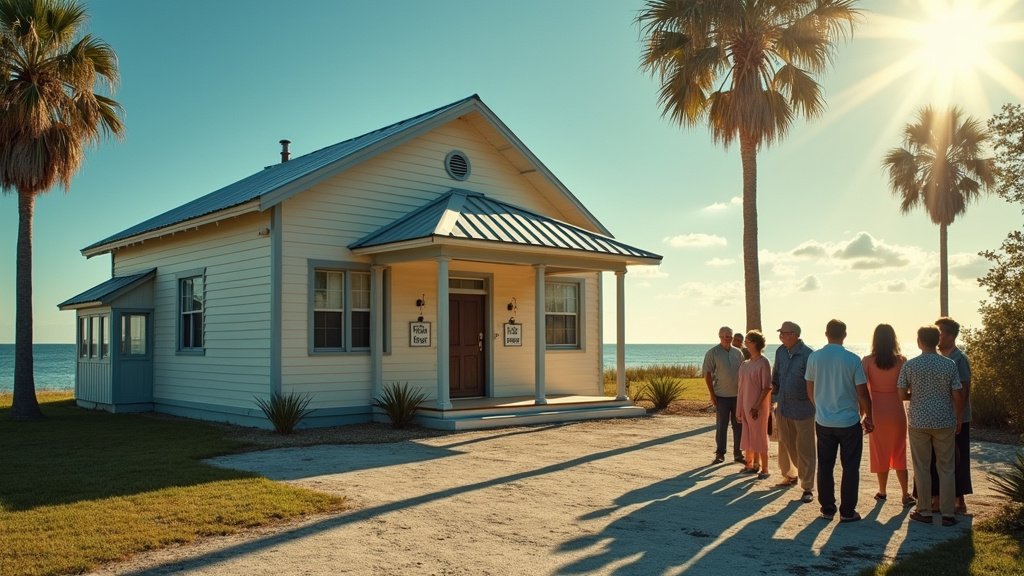In a significant legal and environmental victory, a federal judge has ordered the closure of Florida’s controversial “Alligator Alcatraz” immigration detention center, located deep within the ecologically sensitive Everglades. U.S. District Judge Kathleen Williams mandated that operations at the hastily constructed facility must cease within 60 days, citing critical failures by state and federal authorities to comply with environmental protection laws.
The ruling, delivered late Thursday, halts the expansion of the facility and prohibits the intake of any new detainees. It also requires the removal of temporary infrastructure, including fencing, lighting, and generators, within the same 60-day period. This decision represents a major win for a coalition of environmental groups and the Miccosukee Tribe of Indians of Florida, who argued that the detention center’s construction and operation posed severe risks to the fragile Everglades ecosystem and violated sacred indigenous lands.
The state of Florida, under Governor Ron DeSantis, has vowed to challenge the ruling, filing an immediate notice of appeal. Governor DeSantis has characterized the judge as “activist” and stated that the state’s commitment to immigration enforcement remains undeterred, with “deportations [to] continue until morale improves.”
Landmark Ruling Cites Environmental Law Violations
Judge Kathleen Williams, an appointee of former President Barack Obama, detailed her findings in an 82-page order. She concluded that Florida officials “did not consider alternative locations” for the detention facility, which was built at a disused airfield within the Big Cypress National Preserve. The judge found that the state and federal governments failed to conduct an environmental review, a requirement under federal laws such as the National Environmental Policy Act (NEPA) and the Endangered Species Act, before erecting the facility in just eight days.
“This order does nothing more than uphold the basic requirements of legislation designed to fulfill [decades of] promises” to protect the Everglades, Judge Williams wrote, referencing a long history of bipartisan support for the restoration and conservation of the unique wetland.
Critics, including environmental organizations, argued that the facility’s construction would cause “significant ongoing and likely future environmental harms,” including habitat loss and increased mortality for endangered species like the Florida panther and the Florida bonneted bat. They also pointed to concerns about water quality and the impact of intense lighting on nocturnal wildlife.
‘Alligator Alcatraz’: A Symbol of Controversy
The detention center, officially known as the South Florida Detention Facility but widely nicknamed “Alligator Alcatraz” for its remote location and the state Attorney General’s promotional video featuring alligators and pythons, opened in early July. It was touted by the DeSantis administration and President Donald Trump’s administration as a model for aggressive immigration enforcement and mass deportations.
However, almost since its inception, “Alligator Alcatraz” has been mired in controversy. Detainees and visiting lawmakers have reported inhumane conditions, including extreme heat, swarms of insects, inadequate food, unsanitary facilities with sewage overflows, and limited access to clean drinking water. Some detainees have engaged in hunger strikes to protest these conditions.
The lawsuit challenging the facility was initially filed by Friends of the Everglades and the Center for Biological Diversity, later joined by the Miccosukee Tribe of Indians of Florida. The plaintiffs emphasized that the land is historically significant and sacred to the Miccosukee people, and that the facility’s development disregarded tribal sovereignty and cultural practices.
Advocates and Activists Hail the Decision
Immigrant advocates and human rights groups have celebrated the judge’s order as a crucial victory. U.S. Representative Maxwell Frost, who has visited the facility multiple times, called it “a major victory for justice, civil rights, and our environment.” He described the Everglades detention center as a “state-sponsored, government-funded internment camp” designed to hold immigrants in “hellish conditions.”
“This is a landmark victory for the Everglades and countless Americans who believe this imperiled wilderness should be protected, not exploited,” stated Eve Samples, executive director of Friends of the Everglades. “It sends a clear message that environmental laws must be respected by leaders at the highest levels of our government—and there are consequences for ignoring them.”
The Florida Immigrant Coalition echoed these sentiments, noting that the ruling highlights “what community organizations already knew: in their haste to build the nation’s first state-run detention facility, the DeSantis Administration refused to consider the environmental impacts of the camp on sacred indigenous land.”
State’s Response and Broader Implications
Governor DeSantis’s administration has been a staunch defender of “Alligator Alcatraz,” viewing it as essential to supporting federal immigration enforcement efforts. The state has argued that because the facility is state-run, federal environmental regulations should not apply. However, Judge Williams was unconvinced, finding that the facility’s operations were intertwined with federal immigration enforcement and thus subject to federal environmental laws.
Florida has also announced plans to open a second immigration detention facility, dubbed “Deportation Depot,” at a state prison in North Florida. This move underscores the state’s commitment to expanding its capacity to detain and deport immigrants, a policy aligned with the Trump administration’s broader agenda.
The legal battle over “Alligator Alcatraz” is far from over, with the state’s appeal ensuring continued scrutiny of the facility’s operations and its environmental impact. This news from Miami serves as a critical juncture in the ongoing debate between national security, immigration policy, and the urgent need for environmental preservation in Florida and beyond.
The ruling is a stark reminder that even as political priorities shift, environmental laws and the protection of natural resources remain paramount. Advocates are prepared to continue fighting for the permanent closure of the facility and to oppose any future endeavors that threaten Florida’s vital ecosystems and the dignity of immigrants. This ongoing news cycle will likely see further legal maneuvers and public discourse on the intersection of state authority, federal mandates, and environmental stewardship in the United States.





